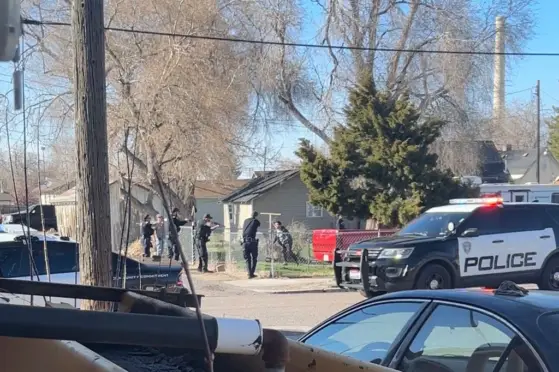To the Ontario City Council;
My name is Russ Belville. While I currently reside in Portland, Oregon, I grew up in the Treasure Valley. I attended grade school in Fruitland; graduated high school in Nampa; attended Boise State University; worked in Payette, Weiser, and Ontario; and served in the Idaho National Guard in Caldwell.
I’m writing to you today about the impending passage (I believe) of a municipal initiative to end the ban on legal marijuana businesses in Ontario. Specifically, I am concerned about the recommendations made by the Planning & Zoning Committee and the Ad Hoc Committee to regulate the operations of Ontario’s future marijuana businesses.
I left the Treasure Valley in 2003 for two reasons: economic opportunity and medical marijuana. I worked in various information technology positions in Idaho, but my medical need for cannabis forced me to leave my family behind. There were no jobs in my field outside Boise, but I could find better paying jobs in Portland and avoid criminal prosecution for my medical use of marijuana.
My entire family still resides in the Treasure Valley. I still bleed blue for my Boise State Broncos. For fifteen years, I have watched from afar as nieces and cousins grew up and graduated. Idaho’s marijuana prohibition kept me in Oregon. Eastern Oregon’s failing economy kept me in Portland.
Now, beginning my fifties, I am excited at the prospect of an economic revitalization in Ontario that could bring me back within easy driving distance of my loved ones. My parents are in their seventies, enjoying the great outdoors of Idaho in their RV. They, too, have discovered the benefits of medical marijuana for the rigors of old age, using cannabis-infused lotions and CBD capsules.
The recommendations made by the committees, however, could seriously impact the economic revival promised by legal marijuana businesses and the 3 percent local tax that comes with them. How and where these marijuana businesses are situated makes all the difference in whether other Ontario businesses benefit. If they are regulated without forethought, Ontario gets more downsides and fewer benefits. And, if you’ll pardon my selfishness, the decisions you make today could very well determine whether I can afford to return to the Treasure Valley to retire.
The consideration of so-called “buffer zones” around marijuana businesses is my primary concern. I’ve never really understood why these marijuana businesses are only safe if they are a certain distance from a school or a park. Within 500 feet of Ontario Middle School and the Boys & Girls Club, there is grocery store selling beer and wine. Within 1,000 feet, there is a Rite-Aid pharmacy selling over-the-counter cough syrup and prescription drugs. Unlike marijuana shops, kids can walk right into those places without anybody checking their ID.
I applaud the council in rejecting the first reading of the recommendation for 1,000-foot buffer zones around two downtown parks leased by the city. Clearly, such a buffer would eliminate the entire downtown for marijuana businesses. The benefit for other businesses from the increased foot traffic would be lost. Shops would be forced to locate in the far east end of the city, encouraging shoppers to get their marijuana and nothing else while in Ontario.
Today, I read that the owner of one of those parks, Moore Park, is attempting to metaphorically extort the council by amending the renewal of the city’s lease to be nullified if any marijuana business opens within 1,000 feet. While it is shocking that someone running for mayor of the city would resort to strongarm tactics to subvert the democratic process, it is not surprising.
Proponents of these ridiculous buffer zones present them as the only defense against a downtown core overrun by an “undesirable element.” The reality is far more mundane – take it from a fifteen-year resident of a city with hundreds of marijuana businesses. The people shopping there are older and mainstream, their IDs are checked at a locked door and again inside during the sale, the storefronts are clean and attractive, and the nearby restaurants, stores, and shops all do more business.
The proposal of a 1,000-foot buffer zone from a marijuana business to a park or school is purely a form of cultural bigotry. Indeed, across S Oregon St. from Moore Park is Long’s Sports Pub, selling liquor by the shot. Across SW 1st St. is Mackey’s Steakhouse & Pub, doing the same. Across SW 2nd Ave. is Little Palomino Food & Spirits. Across SW 1st Ave. is Stockman’s Market, selling cigarettes, beer, and wine. You literally cannot leave Moore Park from any direction without encountering a business that sells alcohol and tobacco.
I believe the council should seriously consider maintaining the exclusion of the downtown parks from any proposed buffer zones, regardless of any threat to nullify the lease of Moore Park. We are talking about $750,000 to one million dollars from a 3 percent marijuana tax versus whatever proceeds the city gains from a weekly farmer’s market and the costs of maintaining the park. Let this hopefully-losing mayoral candidate pay for the upkeep on his patch of grass while all the downtown businesses benefit from the increased foot traffic that legal marijuana businesses will bring.
Furthermore, the council should consider rolling back any proposed buffer zones until they match whatever is required for the sales of alcohol and tobacco in the city. What possible reason, aside from bigotry, justifies treating these three legal products any differently?
Ontario is in a unique position to benefit from the legal sales of marijuana, thanks to its border location. Those marijuana shoppers are already coming to Oregon, it’s just a question of whether their dollars keep driving 30 miles up the interstate to Huntington, whether they take the eastern Ontario exit and drive past most the city, or whether they take the western Ontario exit and spend time and money rebuilding the downtown economy.
Ontario should enact the most marijuana-business-friendly regulations possible. Bring as much investment and opportunity to the eastern Treasure Valley as possible. Position marijuana businesses to benefit other businesses. Maximize the economic impact of legal marijuana for Ontario.
Thank you for your consideration. I hope your decisions make it possible to return home to my family.
Russ Belville
Owner – Delta-9 House & Studios
Portland, Oregon






